- Home
- Catherine Coulter
Midnight Star Page 2
Midnight Star Read online
Page 2
So different Owen was from Guy! Or perhaps he was just more honest. “Owen,” she said calmly, “you are my cousin. Nothing else. Pray do not speak to me thus again.”
Lord, but she was lovely, he thought, not at all deterred by her coldness. A bit on the thin side for his tastes, but even her confining corset couldn’t hide the fullness of her breasts. He imagined her slender long legs wrapped around him and felt a surge of lust harden in his groin. But it was her eyes that drew him. He could see the slumbering passion in their depths. They flashed an amber gold at this moment, lightened in her anger.
“Proud little thing, ain’t you, cousin?” He laughed hoarsely. “You shouldn’t be now. No more living in a fancy house with servants bowing to your every whim. And a doting father to buy you pretty things. All you can hope for is a . . . protector.”
She laughed; she couldn’t help it. “You, I take it, are applying for the position?” She watched his face pale in his anger, his eyes narrow. “Leave me alone, Owen, do you hear me? And stay away from the schoolroom.” She added sarcastically, “Perhaps even your sisters will learn something of value if you’re not there to scoff!”
“Perhaps,” he said very softly, “you will quickly change your mind.” He reached for her, clasping her against him, his movements so quick that she did not have time to react. His hands were moving toward her breasts, his breath was on her face. She did not think of laughing now. “Play dead, my baby,” she heard her old nurse tell her. “Then give that Smith boy a pain he’ll not soon forget!”
She went limp. Owen, elated with her submission, eased his hold on her as he lowered his head to find her mouth. Without a thought to the consequences, Chauncey brought up her knee with all her strength. Owen bellowed with pain and fell back, clutching his groin. “You bitch!” he snarled at her. “You’ll pay for that!”
“I doubt it, you miserable toad,” she said harshly. “We will see what your mother has to say about your molesting me!”
Chauncey had gone immediately to her aunt’s room, filled with righteous anger. She shook her head now, still disbelieving her Aunt Augusta’s attitude.
“Whatever are you talking about, miss?” Aunt Augusta demanded, breaking unceremoniously in on her recital. She rose from her dressing stool, flinging a jar of pomade onto the tabletop.
“I am talking about Owen, Aunt Augusta. He has behaved most improperly.”
Aunt Augusta regarded her, her lips pursed. “Really, Elizabeth, such a tale ill suits you. I understand it, of course I do, but it won’t work. You will cease flirting and teasing my son. He will not marry you.”
Chauncey gaped at her. “You believe that I’m making this up? Marry Owen? I would sooner wed a waterfront pickpocket!”
Owen had stalked her after that, but Chauncey wasn’t a fool. Would he never give up? she wondered. He appeared to enjoy stalking her, a cat-and-mouse game that left her always on edge. Thank God for the lock on her door!
What will happen to me when I turn twenty-one next month?
Chauncey stood quietly outside her aunt’s bedchamber door, her hand raised to knock. There was so little time before her birthday, and she must speak to her aunt. Surely her father’s sister must care at least a little about what happened to her!
Her uplifted hand froze as she heard her aunt say with spiteful clarity, “The girl has no notion of how to go along. Look what we have done for her, Alfred, and still she acts the proud heiress! And those lies she told about dear Owen! The poor boy was much shocked, I assure you.”
“Was he now?” Uncle Alfred murmured.
“Indeed! And the girls aren’t learning a thing from her. Poor Janine told me that Elizabeth had the nerve to scold her for not paying proper attention to her math lesson. Math, of all things! I put a stop to that! Such a pity that she didn’t marry Sir Guy, but I suppose he jilted her when he learned the true state of things.”
“No, ’twas Elizabeth who released him.”
“So she said,” Augusta scoffed. “Stupid of her, I say, if it is true, which I doubt. Just like her mother, she is. All proud and misty-eyed, and not a grain of sense! You can stop looking so misty-eyed, Alfred! Oh yes, I know that you looked sheep’s eyes at dear, sweet Isobel.”
Chauncey froze. Uncle Alfred and her mother? You’re eavesdropping, my girl, and hearing things you shouldn’t. She wanted to leave, but her feet seemed nailed to the floor. She heard her uncle sigh deeply. “Isobel is dead, Gussie. I admired her, yes, but so did most people.”
“Ha! All she produced was one worthless girl. Treated her like a little princess until she died in childbed with another daughter. If Isobel had brought a decent dowry to Alec, perhaps today you and I would own Jameson Hall.”
“Elizabeth would own Jameson Hall, not us, my dear.”
“Had I been Alec’s older brother, rather than his sister, it would be I to own it! Lord knows you haven’t made the wisest of investments, and you in trade! We’ve three daughters, Alfred, and husbands to find for each of them.”
Alfred said mildly, “At least you’ve obtained a free governess for them, my love. That is a saving, I should say, to your houshold expenses. As for my investments, you know that Owen outspends his very generous allowance and brings in not a sou.”
“Owen is a gentleman,” Augusta said angrily. “He will marry well, I will see to it. And as for that haughty little niece of mine, I vow she wouldn’t raise that proud little chin of hers at me if she but knew the truth about her dear father.”
Truth? What truth? Leave, Chauncey, go now. But she still didn’t move. She wondered wildly if her uncle were sweating under his wife’s tirade.
“Leave it be, Gussie. The girl earns her keep.”
“So, Alfred, you want to protect her, and I know why. Isobel’s precious daughter, that’s why! Well, if she dares to bring tales of Owen to me again, I will tell her that her dear father took his own life. Just see if I don’t!”
Chauncey stared blindly at the bedroom door. Her dear father took his own life. . . .
“No!” It was a soft, agonized sound that tore from her throat. She doubled over, the pain so terrible that she thought she would die from it. “No!”
Mary, the one servant in Heath House who treated Chauncey courteously, found her huddled on the lower stairs to the third-floor servants’ quarters. “Miss,” she said softly, lightly touching her hand to Chauncey’s shoulder. “Are you all right, miss?”
Chauncey raised dazed eyes to Mary’s face. “He could not have done such a thing,” she whispered.
“No, of course not,” Mary assured her, having no idea what Miss Elizabeth was talking about. She saw the despair in the young lady’s eyes and wished there was something she could say to ease her pain. It was likely the mistress and her sharp tongue that had brought her to such a state. Damn the old bitch anyway!
“Oh, Mary!” The tears gushed from her eyes, and she sobbed brokenly, nestled against Mary’s ample bosom.
Chauncey raised her chin and quickened her pace along the sidewalk. She had no money, and the walk from Bedford Square to Uncle Paul’s office on Fleet Street was long and tiring. She had worn a heavily veiled black bonnet, and it protected her from the advances of the young men, who took it for granted that a woman by herself was asking for attention. She was perspiring and shallow of breath when she reached the three-story brick building. For a moment she couldn’t make her legs walk up the shallow steps to the entrance.
Don’t be a coward, Chauncey. Aunt Augusta is a vicious old harridan. She was lying. Uncle Paul will tell you the truth.
Several black-garbed clerks were seated on high stools, their heads lowered, their pens scratching industriously on the papers before them. Chauncey cleared her throat.
“Excuse me,” she said, drawing the attention of one young man. “I wish to see Mr. Paul Montgomery. My name is Elizabeth FitzHugh.”
“Have you an appointment?” the young man asked shortly.
Chauncey shook her head. “Please
tell him that I am here,” she said firmly, drawing back the black veil from her face.
The young man’s eyes widened in admiration. “Be seated, miss. I will see if he is free.”
Paul Montgomery emerged quickly from his office. “Chauncey! My dear, what a pleasant surprise! Come in, come in!”
Chauncey smiled back at him, her first smile of pleasure since her father’s death. “I appreciate your taking time to see me, Uncle Paul.”
“Nonsense, my dear!” He led her into his office and pulled back a chair for her in front of his massive oak desk. “Now, tell me what I can do for you.”
For several moments she couldn’t speak.
“You are looking lovely, Chauncey,” he said as her silence stretched long. “I trust you have settled in nicely with your aunt and uncle?” Please let her say yes, he thought, forming the words in his own mouth that he wished her to speak.
“Uncle Paul, did my father kill himself?”
The stark words hung in the air between them. She saw him stiffen, saw the betraying gleam in his dark eyes through the thick lenses of his spectacles.
He slowly removed his glasses, cleaning them on the cuff of his shirt, a stalling habit Chauncey recognized. “Wherever did you get such a notion, my dear?”
“It is true, then,” she said. “Please, Uncle Paul, do not lie to me. I . . . I overheard my aunt say it to my uncle.”
“Stupid woman!” Paul Montgomery muttered. He studied her pale face intently, and seemed to come to a decision. “I am sorry, my dear. There was no reason for you ever to know. I had no idea that your aunt . . . But it doesn’t matter now, does it?”
“It matters to me.” Chauncey felt a trickle of sweat snake downward between her breasts. “He was given a Christian burial,” she said numbly. “No one said anything. Not even Dr. Ramsay.”
“I wasn’t about to announce to the vicar that your father’s death wasn’t a tragic accident! Indeed, my dear, it was just that. Dr. Ramsay agreed with me. The overdose of laudanum . . .”
“Why, Uncle Paul? Why did he do it?”
His eyes fell to his slight paunch, held in by a stiff-clothed waistcoat. “I had prayed that I would never have to tell you this, Chauncey.”
“I cannot believe that he would take his own life because of a few bad investments!”
“Not just that. It’s a rather involved story, my dear.” He paused a moment, as if collecting his thoughts. He saw the determination on her face, and said quietly, “Very well, Chauncey, if you must know. In the summer of 1851, your father met an American here in London, Delaney Saxton by name. Saxton was looking for investors. It seemed that he was quite wealthy, having made a fortune in gold in California, but he wanted to increase his wealth. He struck a deal with your father. Your father insisted that I and Saxton’s English solicitor, Daniel Boynton, arrange for the transfer of twenty thousand pounds to Mr. Saxton. I should have realized that your father had mortgaged everything to raise the money, but I didn’t. Boynton and I drew up papers to protect your father’s investment. If the quartz mine, a sure thing according to Saxton, did not produce the amounts of gold he had promised it would, Saxton agreed to sign over partial ownership of another operating gold mine to your father. He showed proof of the gold mine’s profitability. Saxton left England several months later. We heard nothing, absolutely nothing. Your father was growing desperate. Some two months before his death, Saxton’s solicitor informed me that Mr. Saxton had written to tell him that the quartz mine your father had invested in had not produced the gold expected. Saxton then refused to honor the agreement. Your father took it very badly.”
“But that is incredible, Uncle Paul, unbelievable!”
“Not really, my dear. I must admit that I was somewhat skeptical about the entire business, but your father . . .” He shrugged. “He claimed that this Saxton had influential friends here in London. He trusted him.”
“Just who are these influential friends?”
“I don’t know. For some reason, your father refused to tell me who they were. I, of course, wanted to pursue the matter with them, but he insisted he would take care of it.”
“Obviously they refused to help him. What about Saxton’s solicitor, Boynton? Surely he must have known!”
“Again, my dear, I cannot tell you. You see, poor Boynton died several weeks before your father, of apoplexy.”
Chauncey stared at him blankly. If only, she thought vaguely, if only she had been her father’s son, she would have been allowed to help him. She said slowly, “You sound as if you do not believe there ever was a quartz mine, Uncle Paul. That this was all a swindle.”
“I think it quite likely. I fear we will never know.”
“But what about the law? Why was nothing done about it?” Her voice rose shrilly.
“My dear Chauncey, Delaney Saxton lives in San Francisco, a city in California. It is many thousand miles distant. Believe me, once your father admitted to me that he would lose everything if Saxton weren’t made to honor the agreement, I notified a banker friend of mine in New York City. He made inquiries, but could not discover anything. To continue would have cost a great deal of money. Neither your father nor I had it. There was nothing left, you see.”
Chauncey closed her eyes a moment. Why hadn’t her father confided in her? Didn’t he realize that she would have done anything for him? To take his life because of money . . . to leave her alone, at the mercy of her aunt. She felt a niggling anger at his cowardly behavior, but firmly quashed it. He obviously was not thinking clearly. He obviously assumed that she would wed Guy Danforth. She laughed, a harsh, rasping sound. “And there is still no money,” she gasped. “Not any! And this crook, this abominable villain, Saxton, goes free!”
“Chauncey, my dear, you are overwrought. You must calm yourself. I was an unthinking fool to have told you!”
She swallowed the rising hysteria. The world had never seemed more bleak than it did at this moment. She said aloud, “And I shall likely become a shop girl, sewing bonnets.” She laughed again. “It is unfortunate, Uncle Paul, but I can’t sew!”
“Chauncey, please. You will remain with your aunt and uncle. You will marry soon. In time, all this will fade, and you will forget. You will see.”
Chauncey stood up, her shoulders squared, her back rigid. “No, Uncle Paul, I won’t forget, ever.”
Paul Montgomery looked at her distraught face. So proud and so helpless. She likely would not forget, but it wouldn’t help her. No, he thought, nothing would help her, ever. He said not another word, merely escorted her from his office.
2
Chauncey could only stare openmouthed. “This is for me, Aunt Augusta?”
Augusta presented her with a wide, toothy smile. “Of course, my dear Elizabeth. It is your birthday, is it not? All this black you’ve been wearing, well, it’s time for a change. We want to raise your spirits, my dear. I don’t believe your dear father would have wanted you to go about for more than six months in such dismal clothes.”
Chauncey was filled with a sense of unreality as she fingered the lavender silk gown. Aunt Augusta smiling at her? Giving her gifts? The world had taken a faulty turn! She stared blindly about her aunt’s drawing room with its ponderous dark furniture, heavy fringed draperies, and the endless supply of bric-a-brac that filled every nook and cranny. “Such a scourge to dust all those things!” she could hear Mary saying.
“You will look very beautiful, cousin,” Owen said, moving toward her. “Though you are lovely just as you are.”
Chauncey raised her eyes to Owen’s face. He was gazing at her with the most sincere of expressions. But he is lying, she realized. He dislikes me heartily!
Uncle Alfred cleared his throat, but at a look from his wife, he kept silent.
“Dear Elizabeth,” Aunt Augusta said slowly, “I realize that the past six months have not been particularly . . . pleasant for you. Your poor father’s death came as a dreadful shock. I will be honest with you, Elizabeth. Your uncle a
nd I were taken aback that Alec had left you penniless. It was our own shock and disappointment, I suppose, that made us behave so unfairly. I can only say that we had been undergoing some financial problems and that quite turned our heads and our hearts. You are such a sweet girl. I pray you will find it in your heart to forgive us.” Aunt Augusta smiled at her and gave her a gentle, affectionate hug.
Chauncey allowed herself to be hugged, and for an instant, warmth flowed through her. To be wanted, to belong again. It was all a mistake. They did care about her, they did want her to be happy.
Uncle Alfred cleared his throat again. “Elizabeth, my dear, we plan to celebrate your birthday this evening. A festive dinner and a play. Does that please you?”
“Yes, yes, of course, Uncle Alfred,” she managed to say.
“Why do you not change, Elizabeth,” Aunt Augusta said. “I have assigned Mary to you as your personal maid. I know you believed we had dismissed her after your little . . . excursion last week, but we soon realized how very fond of her you are. She is waiting in your room to assist you.”
Chauncey’s feeling of unreality grew. The soft shimmering gown seemed as insubstantial as what had just occurred. “Thank you,” she murmured, and left the salon in a daze.
Mary was waiting for her, just as Aunt Augusta had said.
“I don’t understand it either, miss,” Mary said, reading her thoughts exactly as she helped Chauncey remove the hated black wool gown. “When the agency told me I was to return here, I nearly swallowed my tongue! Turned off and without a reference, I was, and all because I tried to help you pay a visit to that solicitor of your father’s without that old prune knowing about it!” Mary shook her head. “Of course, that miserable squealer Cranke found out and told her ladyship! Such a scene she made with me! A regular sharp-tongued fishwife, that one!”
Chauncey shivered, remembering her own scene with her aunt upon her return from Uncle Paul’s office. She had been treated like a pariah until today, her birthday. Not that she had been particularly aware of it, for her mind had been in a tangle of confusion. No, she amended to herself, not confusion really, rather a cold numbness that had turned to blinding hatred for the man who had swindled her father and caused him to kill himself. She had understood everything Paul Montgomery told her, everything. And she felt so bloody helpless! Delaney Saxton was thousands of miles away and here she was, stuck in London, without a farthing to her name. She became aware that Mary was looking at her expectantly, but for the life of her she couldn’t remember if Mary had asked her a question. “I’m sorry, Mary, I wasn’t attending. All of this”—she waved her hand toward the lovely gown—“all of this is such a shock! Aunt Augusta apologized to me. Indeed, she even hugged me. I do not know what to believe. It is all such a mystery.”

 The Cove
The Cove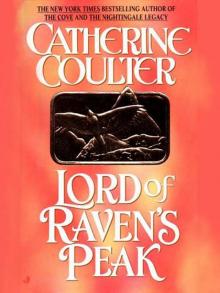 Lord of Raven's Peak
Lord of Raven's Peak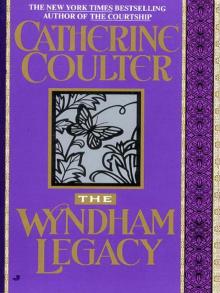 The Wyndham Legacy
The Wyndham Legacy The Strange Visitation at Wolffe Hall
The Strange Visitation at Wolffe Hall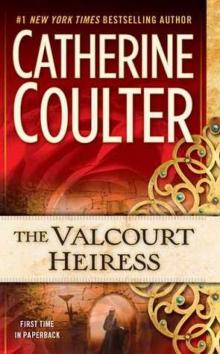 The Valcourt Heiress
The Valcourt Heiress Bombshell
Bombshell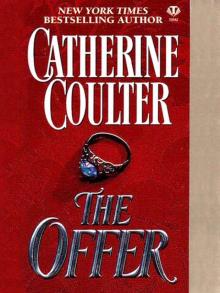 The Offer
The Offer The Edge
The Edge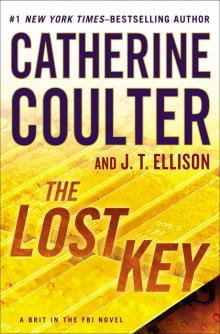 The Lost Key
The Lost Key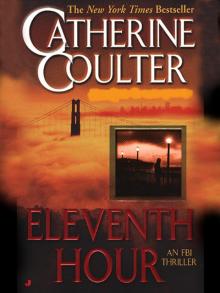 Eleventh Hour
Eleventh Hour Blindside
Blindside Devil's Daughter
Devil's Daughter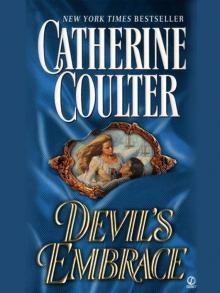 Devil's Embrace
Devil's Embrace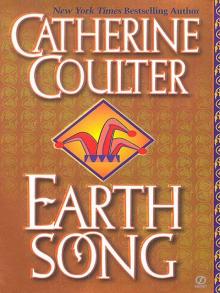 Earth Song
Earth Song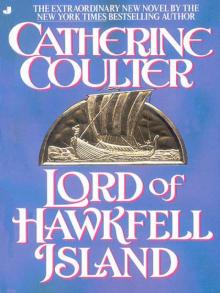 Lord of Hawkfell Island
Lord of Hawkfell Island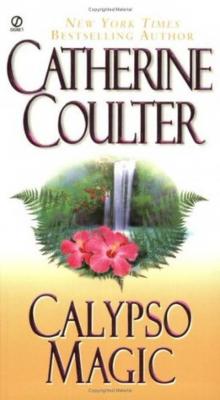 Calypso Magic
Calypso Magic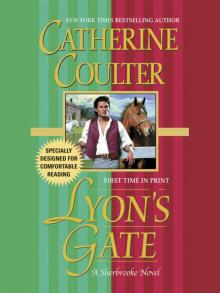 Lyon's Gate
Lyon's Gate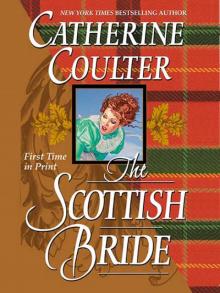 The Scottish Bride
The Scottish Bride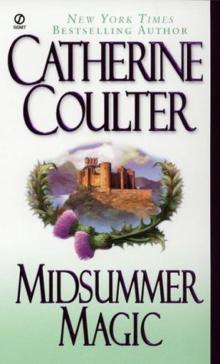 Midsummer Magic
Midsummer Magic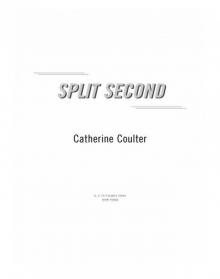 Split Second
Split Second Enigma
Enigma Blowout
Blowout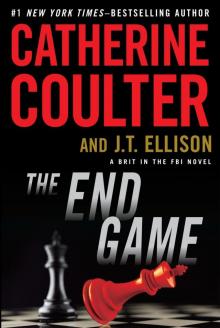 The End Game
The End Game Double Take
Double Take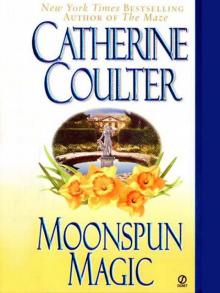 Moonspun Magic
Moonspun Magic The Courtship
The Courtship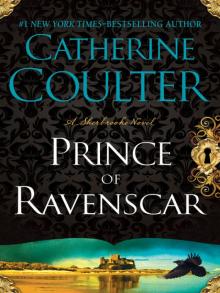 Prince of Ravenscar
Prince of Ravenscar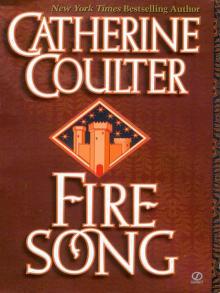 Fire Song
Fire Song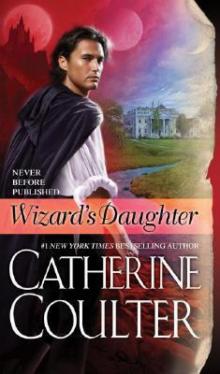 Wizard's Daughter
Wizard's Daughter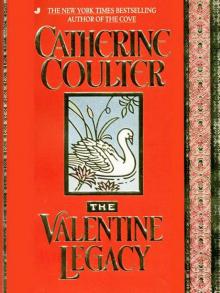 The Valentine Legacy
The Valentine Legacy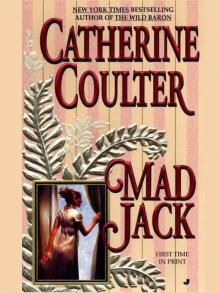 Mad Jack
Mad Jack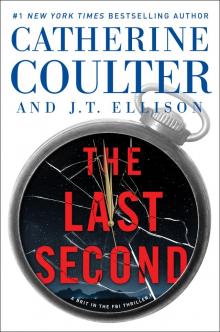 The Last Second
The Last Second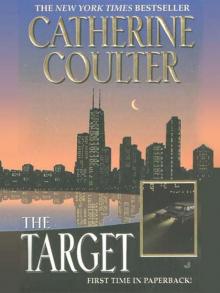 The Target
The Target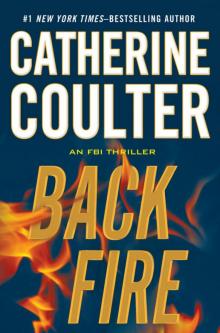 Backfire
Backfire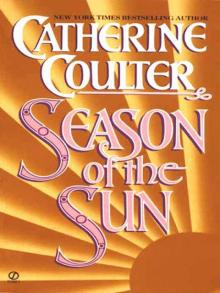 Season of the Sun
Season of the Sun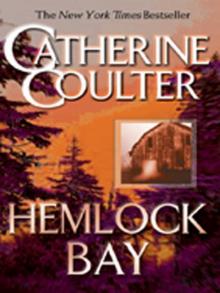 Hemlock Bay
Hemlock Bay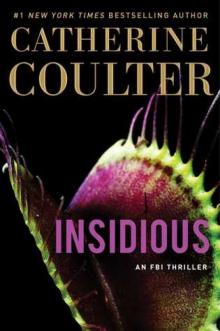 Insidious
Insidious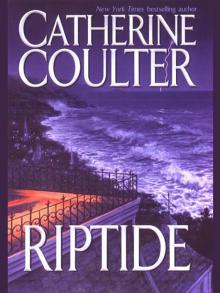 Riptide
Riptide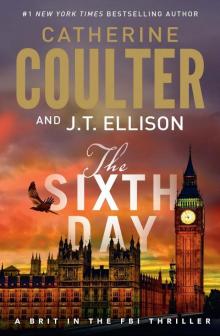 The Sixth Day
The Sixth Day Secret Song
Secret Song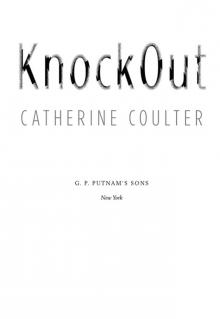 KnockOut
KnockOut Jade Star
Jade Star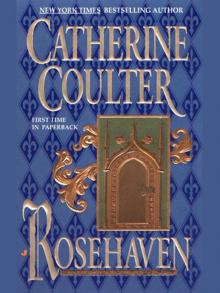 Rosehaven
Rosehaven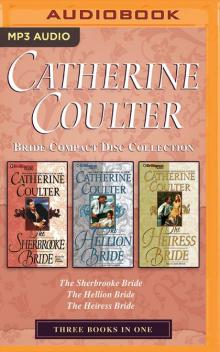 The Hellion Bride
The Hellion Bride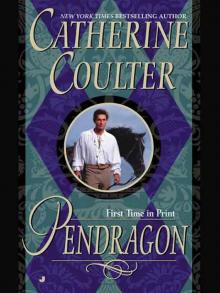 Pendragon
Pendragon Vortex
Vortex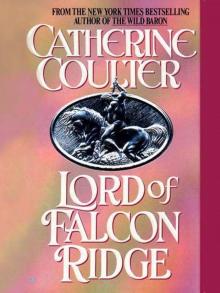 Lord of Falcon Ridge
Lord of Falcon Ridge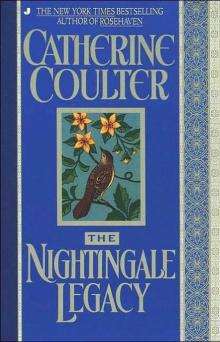 The Nightingale Legacy
The Nightingale Legacy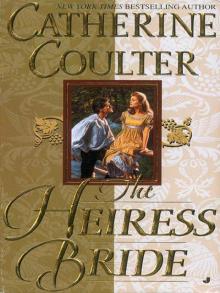 The Heiress Bride
The Heiress Bride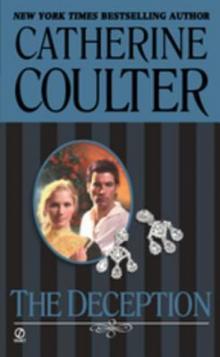 The Deception
The Deception The Maze
The Maze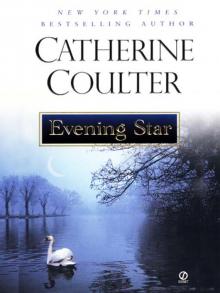 Evening Star
Evening Star Wild Star
Wild Star The Final Cut
The Final Cut Paradox
Paradox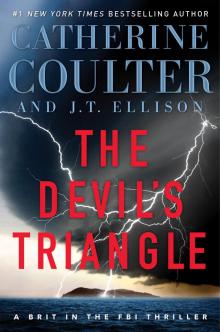 The Devil's Triangle
The Devil's Triangle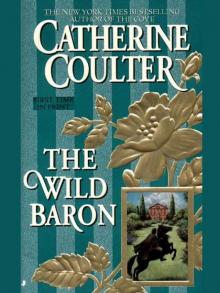 The Wild Baron
The Wild Baron Point Blank
Point Blank Labyrinth
Labyrinth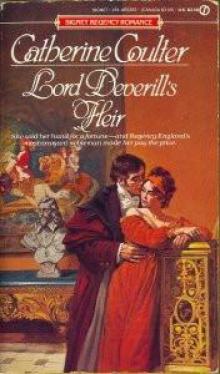 Lord Deverill's Heir
Lord Deverill's Heir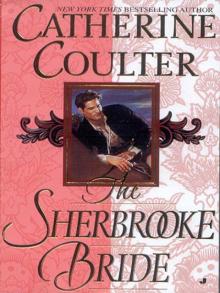 The Sherbrooke Bride
The Sherbrooke Bride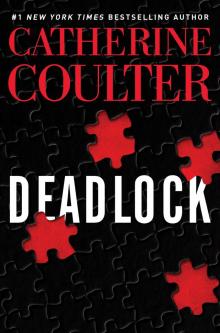 Deadlock
Deadlock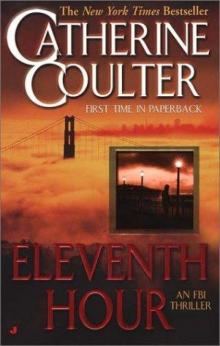 Eleventh Hour f-7
Eleventh Hour f-7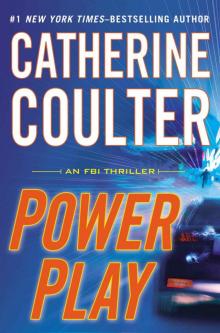 Power Play (An FBI Thriller)
Power Play (An FBI Thriller)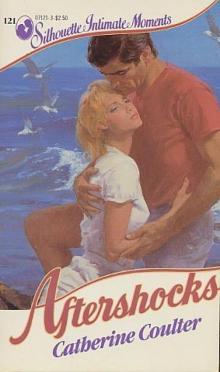 Aftershocks
Aftershocks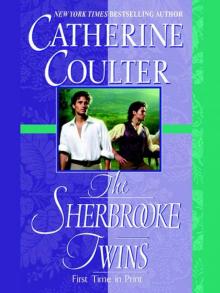 Sherbrooke Twins tb-8
Sherbrooke Twins tb-8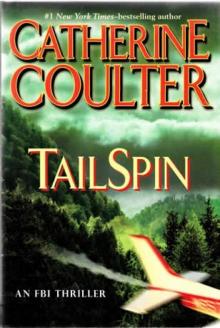 Tail Spin ft-12
Tail Spin ft-12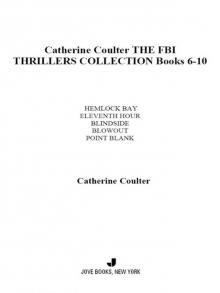 The FBI Thrillers Collection
The FBI Thrillers Collection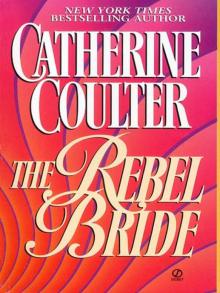 The Rebel Bride
The Rebel Bride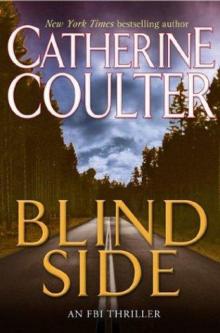 Blindside f-8
Blindside f-8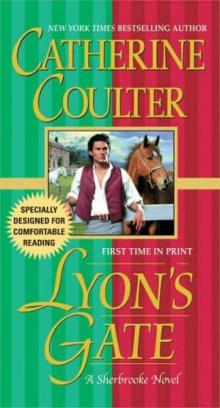 Lyons Gate tb-9
Lyons Gate tb-9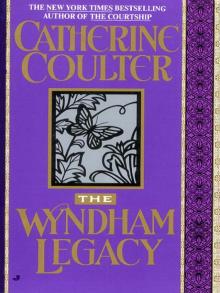 Wyndham Legacy
Wyndham Legacy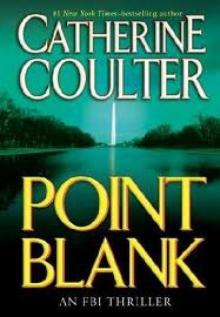 Point Blank f-10
Point Blank f-10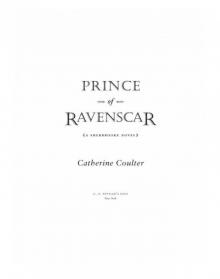 The Prince of Ravenscar
The Prince of Ravenscar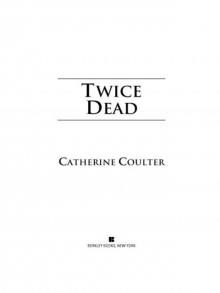 Twice Dead
Twice Dead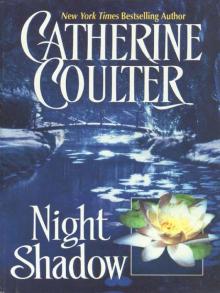 Night Shadow
Night Shadow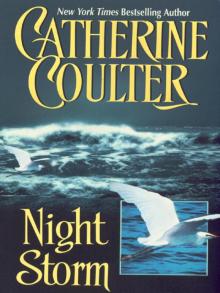 Night Storm
Night Storm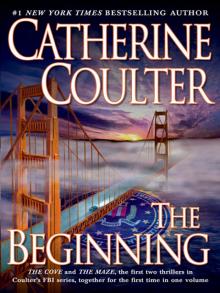 The Beginning
The Beginning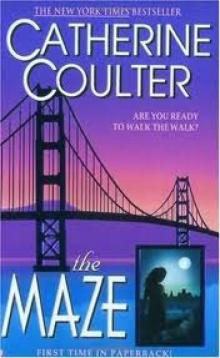 The Maze ft-2
The Maze ft-2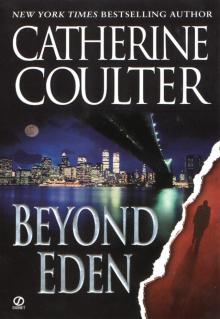 Beyond Eden
Beyond Eden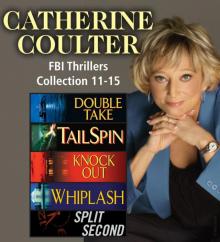 The FBI Thrillers Collection: Vol 11-15
The FBI Thrillers Collection: Vol 11-15 FALSE PRETENSES
FALSE PRETENSES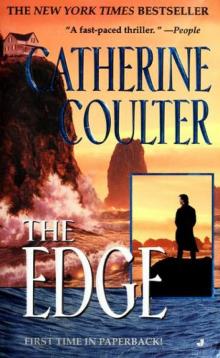 The Edge f-4
The Edge f-4 Bombshell (AN FBI THRILLER)
Bombshell (AN FBI THRILLER)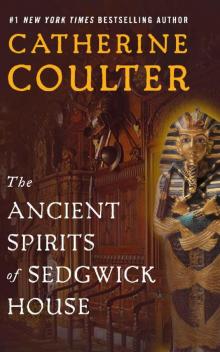 The Ancient Spirits of Sedgwick House (Grayson Sherbrooke's Otherworldly Adventures Book 3)
The Ancient Spirits of Sedgwick House (Grayson Sherbrooke's Otherworldly Adventures Book 3)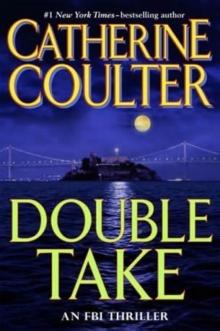 Double Take ft-11
Double Take ft-11 The Heir
The Heir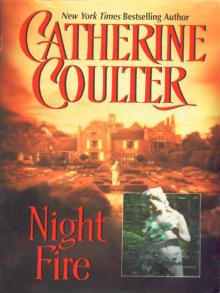 Night Fire
Night Fire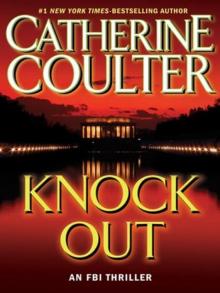 KnockOut ft-13
KnockOut ft-13 Hemlock Bay f-6
Hemlock Bay f-6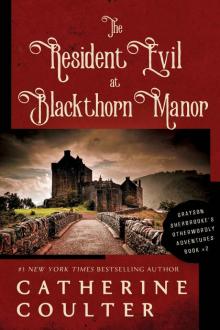 The Resident Evil at Blackthorn Manor (Kindle Single) (Grayson Sherbrooke's Otherworldly Adventures Book 2)
The Resident Evil at Blackthorn Manor (Kindle Single) (Grayson Sherbrooke's Otherworldly Adventures Book 2)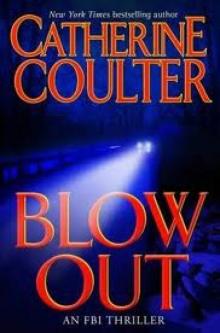 Blowout ft-9
Blowout ft-9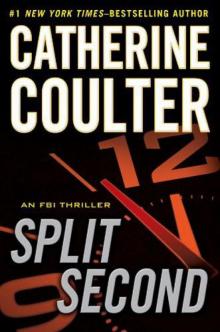 Split Second f-15
Split Second f-15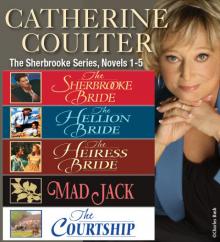 The Sherbrooke Series Novels 1-5
The Sherbrooke Series Novels 1-5 Impulse
Impulse Paradox (An FBI Thriller Book 22)
Paradox (An FBI Thriller Book 22)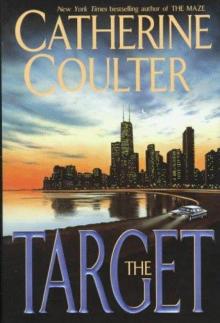 The Target f-3
The Target f-3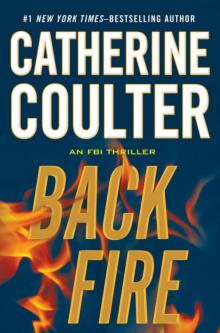 Backfire fst-16
Backfire fst-16 Born To Be Wild
Born To Be Wild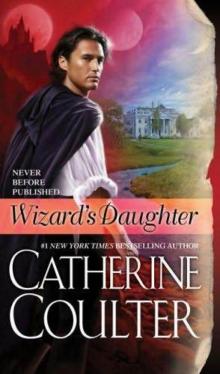 Wizards Daughter tb-10
Wizards Daughter tb-10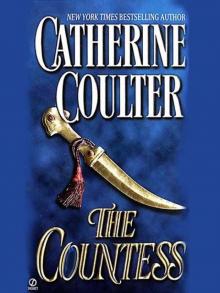 The Countess
The Countess